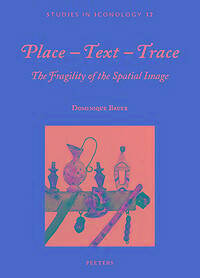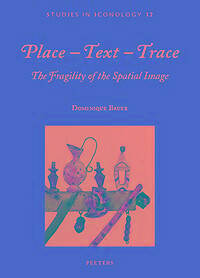
- Afhalen na 1 uur in een winkel met voorraad
- Gratis thuislevering in België vanaf € 30
- Ruim aanbod met 7 miljoen producten
- Afhalen na 1 uur in een winkel met voorraad
- Gratis thuislevering in België vanaf € 30
- Ruim aanbod met 7 miljoen producten
Zoeken
Omschrijving
The past was over, the future was not there yet and the present was a future past. Throughout the long nineteenth century, past and present had become traces and layers, burdened with an inescapable dimension of absence. Writers, scholars and architects, political theorists, artists, visitors of museums and exhibitions, the miller in Provence and the shepherd in the Landes, were facing a rapidly changing world. The present had become elusive and fragile. The past was irrevocably gone and other. In an initial context of loss, of dispersion and disconnection of lands, people, professions and things, new frameworks of meaning and imagination, of 'presentification', had to be found, tools of preservation, of restoration, of (re)establishment and vivification. Place and text become such tools. Against a concise background of comparative literature and contemporary philosophy on absence and presentification, this essay explores spatial images in French and Belgian nineteenth-century literature, especially in the work of Chateaubriand, Balzac, Rodenbach and Mistral. It is argued that the spatial image, as textual space and spatial text, and in the built environment, operates as a cultural subtext of presentification. Its disruptive nature, its own fragility and eventual self-fragmentation reveal the cultural ambiguities of the century's tragic and grand strife to make the elusive present eternal, timeless, fixed, absenceless and complete in the age of traces.
Specificaties
Betrokkenen
- Auteur(s):
- Uitgeverij:
Inhoud
- Aantal bladzijden:
- 117
- Taal:
- Engels
- Reeks:
- Reeksnummer:
- nr. 12
Eigenschappen
- Productcode (EAN):
- 9789042936256
- Verschijningsdatum:
- 2/05/2018
- Uitvoering:
- Paperback
- Formaat:
- Trade paperback (VS)
- Afmetingen:
- 170 mm x 239 mm
- Gewicht:
- 340 g

Alleen bij Standaard Boekhandel
+ 76 punten op je klantenkaart van Standaard Boekhandel
Beoordelingen
We publiceren alleen reviews die voldoen aan de voorwaarden voor reviews. Bekijk onze voorwaarden voor reviews.











